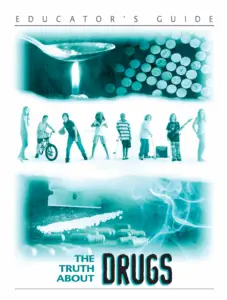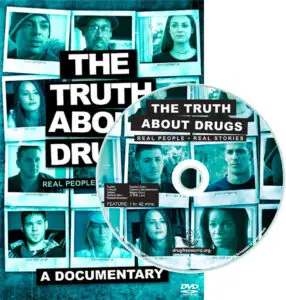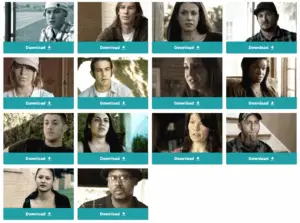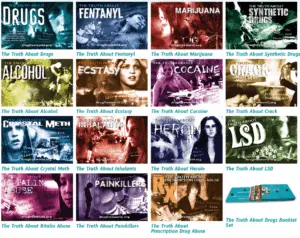Bringing Life Saving Drug Education
Directly to Schools
Effective Drug Education
Drug Educators Alliance (DEA), delivers proven, effective, and engaging drug education directly into schools, completely free of charge.
Our trained educators bring the full Truth About Drugs curriculum — a comprehensive, evidence-based program — to students in communities where schools may not have the staff or resources to deliver it themselves.
Why This Program Works
Proven Results in Communities
Evidence-Based Curriculum
The Truth About Drugs curriculum is a 19-lesson program covering:
- Why drug education is necessary.
- Our drug culture and why people use drugs.
- How drugs affect the mind and body.
- Detailed lessons on marijuana, alcohol, cocaine, meth, heroin, prescription drugs, inhalants, LSD, ecstasy, and more.
- Real-life stories, interactive discussions, and multimedia presentations.
Our Process – How We Bring the Program to Your School
- Assess Student Reach – We determine how many students will receive the full program.
- Plan Delivery Hours – We calculate how much time and how many educators are needed.
- Secure Funding – DEA fundraises to cover all staff, travel, and material costs.
- Deliver the Curriculum – Our trained educators present the program in classrooms, or at assemblies and special events.
Important: When district funding is not available schools can apply to have the costs are covered by our fundraising efforts.
Flexible Delivery Options
While the full 19-lesson program is ideal, we understand some schools have limited schedules. In those cases, we tailor delivery to focus on the specific drugs most affecting your community — such as vaping, marijuana, or opioids.
The Curriculum at a Glance
Every student who participates in the program is equipped with powerful tools to learn and share the truth about drugs. Each lesson includes engaging videos, interactive discussions, and activities that make the information real and memorable. Most importantly, every student receives their very own booklet on each drug covered in the curriculum — to take home, study, and share with friends and family. These colorful, fact-filled booklets cover topics like fentanyl, marijuana, alcohol, opioids, meth, and more. This combination of in-class learning, along with take-home and online resources ensures the message doesn’t stop at the classroom door — it spreads into homes and communities.
Core Lessons - Syllabus
Drugs are everywhere in today’s world, and young people are constantly faced with misinformation from peers, media, and pop culture. This lesson explains why accurate, honest education is critical to helping students make informed, healthy choices before they’re confronted with real-life pressure.
From movies and music to social media, drugs are often glamorized. This lesson helps students see how cultural influences can normalize harmful behavior, and teaches them to think critically about the messages they receive every day.
People don’t take drugs without a reason. This lesson explores common motivations—like curiosity, peer pressure, escape from problems, or wanting to fit in—and shows how these short-term choices can have long-term consequences.
Drugs are chemicals that alter the way the body and brain function. Students learn the science of how drugs enter the body, travel through the bloodstream, and change brain chemistry, leading to changes in mood, perception, and decision-making.
This lesson debunks myths about marijuana being “harmless” or “natural” by covering its effects on memory, motivation, mental health, and school performance. Students see how THC impacts the brain and can lead to dependency.
Alcohol may be legal, but it’s one of the most abused substances among teens. Students learn how alcohol affects coordination, judgment, and the liver, and why underage drinking is dangerous and can have legal consequences.
Ecstasy is often marketed as a “party drug,” but it’s linked to dangerous health effects like overheating, dehydration, and brain damage. This lesson gives students the facts about its unpredictable and sometimes deadly consequences.
Students discover how cocaine overstimulates the nervous system, leading to dangerous heart and brain effects. The lesson also addresses the crash, addiction potential, and mental health risks associated with cocaine use.
Crack is a potent, smokeable form of cocaine that creates intense highs and devastating addiction. Students learn why this drug can quickly destroy health, relationships, and opportunities.
This lesson exposes how meth powerfully stimulates the brain, leading to severe addiction, tooth decay (“meth mouth”), paranoia, and permanent brain damage. Students see the physical and emotional toll meth takes.
Often common household products, inhalants can cause sudden death even on first use. Students learn how inhalants damage the brain, heart, and lungs, and why they are especially dangerous for young people.
Heroin is a powerful opioid that quickly leads to addiction and life-threatening overdoses. This lesson explains the link between prescription painkiller abuse and heroin use, and the devastating impact on health and life.
LSD is a hallucinogen that distorts reality, sometimes causing terrifying “bad trips” and long-term mental effects. Students learn about the risks of impaired judgment, flashbacks, and unpredictable reactions.
Not all drugs come from the street—many are found in medicine cabinets. This lesson teaches how misuse of prescription drugs, even when they’re legal, can be just as dangerous and addictive as illegal substances.
Painkillers like oxycodone and hydrocodone are highly addictive opioids. Students learn how misuse can lead to tolerance, dependence, and overdose, and how these drugs are often a gateway to heroin use.
In this summary lesson, students review the key truths they’ve learned and see how making informed decisions about drugs can protect their future, health, and relationships.
Knowledge only matters if it’s applied. This lesson helps students develop refusal skills, share accurate information with friends, and make a personal commitment to staying drug-free.
Students celebrate completing the program with certificates and recognition, reinforcing their achievements and empowering them to continue making positive choices.
What People Are Saying
Bring This Program to Your School
We handle everything — planning, materials, trained staff, and delivery. All you need to do is say yes to giving your students the truth about drugs.



